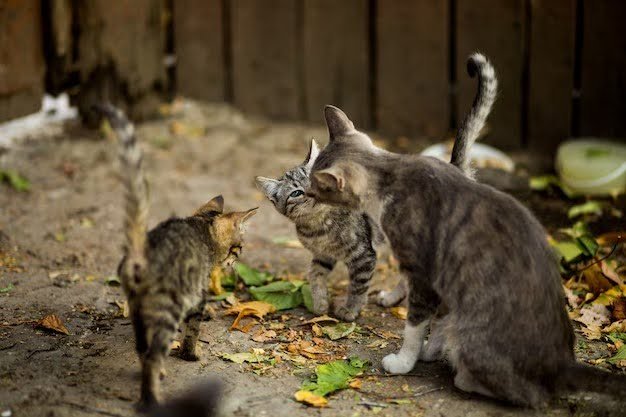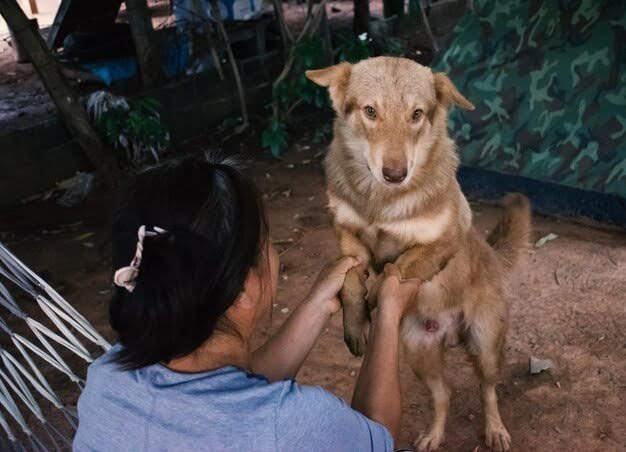
In a city known for its cleanliness and strict regulations, the simple act of feeding a hungry stray cat or dog might seem like a kind gesture. But many residents often ask, is it illegal to feed stray cats and dogs in Singapore? The short answer is—it depends. While the law doesn’t outright ban feeding strays, there are circumstances where doing so could land someone in trouble, especially when public hygiene and nuisance issues arise.
Before you open that can of tuna or toss scraps to a wandering pup, here’s what you should know about the rules, risks, and responsibilities involved.
What The Law Says About Feeding Stray Animals In Singapore
Feeding a stray animal out of compassion might feel like the right thing to do—but in Singapore, there are legal boundaries to keep in mind. While there’s no outright ban that says it is illegal to feed stray animals in every case, the law focuses on how your actions affect the community.
Under the Environmental Public Health Act (Section 17(1)), it’s an offence to leave food in public spaces if it causes litter. This includes food scraps, disposable containers, or anything that attracts pests like rats and cockroaches. Even if you clean up afterwards, if the area becomes messy or attracts unwanted animals, enforcement officers may still step in.
Another legal point is Section 268 of the Penal Code, which covers public nuisance. If feeding animals regularly causes noise disturbances, foul smells, aggressive animal behaviour, or general discomfort for neighbours, this too may be treated as a legal offence.
So while your intention may be kind, the outcome matters. Feeding stray animals without managing the after-effects may unintentionally put you on the wrong side of the law.
Feeding Stray Cats Specifically

When it comes to cats, the rules can feel a bit more flexible, but that doesn’t mean there are no consequences. Many residents ask, “Is it illegal to feed stray cats in Singapore?” The short answer is: not by default, but you must be responsible.
Community cats are often part of the Trap-Neuter-Return-Manage (TNRM) programme, supported by the Animal & Veterinary Service (AVS) and community caregivers. If you’re feeding in a way that’s aligned with such efforts—cleaning up after, using proper feeding containers, and not feeding near homes or walkways—then the chances of legal issues are lower.
However, if you leave food unattended, cause messes, or attract complaints from neighbours, enforcement action can still be taken. It’s always wise to communicate with recognised cat feeders in your area or volunteer groups who can guide you on best practices.
What About Stray Dogs?

Stray dogs are treated differently from cats due to safety concerns. While cats are mostly seen as community-managed, stray dogs—especially those in packs—can be viewed as a public risk. That’s why many people wonder, “Is it illegal to feed stray dogs in Singapore?”
Again, there’s no law that outright bans feeding dogs, but AVS discourages the public from doing so without coordination. Feeding stray dogs can interfere with animal control operations and might encourage them to return to residential areas, raising safety and hygiene concerns.
Furthermore, dogs are more likely to be classified as unlicensed animals, and if captured, they may be subjected to control measures, including rehoming or, in some cases, euthanasia if found to be aggressive and unmanageable. Feeding them without a plan may do more harm than good, even if the intention is noble.
What You Can Do Instead
If you care about the welfare of stray animals but want to stay within the law, there are safer and more effective ways to help:
- Volunteer With Animal Welfare Groups
Organisations working with AVS often need help managing feeding routines, sterilisation, and rescue efforts. This way, your kindness becomes part of a sustainable, legal solution. - Support Community Cat Programmes
Instead of feeding on your own, consider joining local community cat caregiving networks. They follow established guidelines and are less likely to attract legal trouble. - Donate Supplies or Food
Shelters and animal rescue groups are always in need of resources. Your donations can help feed dozens of animals in a controlled environment. - Adopt or Foster
If you’ve bonded with a stray cat or dog, consider adoption. It’s the most long-term way to make a difference—and gives the animal a safe home. - Call AVS or a Vet If You Spot a Sick or Injured Animal
Strays may need medical attention, and reporting them to the right authorities ensures they get the help they need.
Conclusion About Feeding Stray Animals In Singapore
So, to answer the big question—is it illegal to feed stray cats and dogs in Singapore?—not always, but it can be if done irresponsibly. Being kind to animals is admirable, but in Singapore, it also comes with responsibilities. If in doubt, it’s always better to seek legal advice than risk breaching the law.
Need help navigating the fine print or facing legal consequences for animal-related actions? Reach out to Tembusu Law, home to the best criminal lawyers in Singapore who are ready to assist with clear, practical advice.
Frequently Asked Questions About Feeding Stray Animals In Singapore
Is Feeding Stray Cats Illegal In Singapore If It’s Cleaned Up Afterward?
Even if you clean up, repeated complaints or public disturbances can still result in enforcement action. Feeding should be done discreetly and responsibly.
Can I Be Fined For Feeding Stray Animals?
Yes. Under the Environmental Public Health Act, fines can be issued if your feeding activity results in litter, pests, or public hygiene concerns.
Are There Designated Places Where I Can Feed Strays Legally?
Not officially. However, working with AVS-approved community animal caregivers or welfare groups allows you to feed in a way that’s more accepted and structured.
What Should I Do If I Find A Stray Animal In My Neighbourhood?
Report the animal to the Animal & Veterinary Service (AVS) or contact a local animal welfare group. Avoid feeding until proper guidance is given.